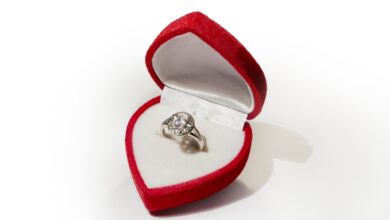Is it better to have lighter skin?

Light skinned people tend to be healthier than darker-skinned individuals. There are many reasons for this, including the fact that they don’t get sunburned as easily, their immune systems work better, and they’re less likely to develop certain cancers.
Darker-skinned people tend to have higher levels of vitamin D, which helps protect them from cancer and heart disease. Darker-skinned people also tend to have stronger bones, which mean they’re less prone to osteoporosis.
It’s not clear whether or not having lighter skin is better than having darker skin. Both types of skin cells produce melanin, which gives color to our skin. Melanin makes us tan, but it also produces UV rays that cause sun damage. So while dark skin may help prevent sunburn, it could also increase your risk of developing skin cancer later in life.
People who have fair skin are at greater risk of developing skin cancer. But if you do get skin cancer, it tends to be easier to treat.
If you have darker skin, you’ll need to use sunscreen more often. And since you spend more time outside, you’ll want to make sure you’re getting enough vitamin D.
Having lighter skin will allow you to burn more easily. That means you’ll need to apply sunscreen more frequently.
Lighter-skinned people tend to be thinner, so they might have fewer calories to eat. On the other hand, they tend to weigh less, so they might have lower body fat percentages.
Skin color is determined by melanin production, which is controlled by genetics. Melanin helps protect the body from harmful UV rays. However, some people believe that darker skin is healthier than lighter skin. In fact, dark-skinned individuals tend to live longer than those with fair skin.
The following article explores whether or not having darker skin is better than having lighter skin.
This question has been asked many times over the years, and I’m sure we’ll continue to ask it until we find out the answer. So let’s dive right in!
Skin color is determined by melanin, a pigment produced by cells called melanocytes. Melanin helps protect our bodies from harmful ultraviolet rays (UVR) from the sun. However, too much exposure to UVR can cause damage to DNA and lead to skin cancer.
The amount of melanin present in your skin determines how dark your skin appears. Skin color is influenced by genetics, hormones, diet, lifestyle, and environment. There are three types of melanin: eumelanin, pheomelanin, and neuromelanin. Eumelanin makes your skin darker; pheomelanins make your skin paler; and neuromelanins give your skin its brownish-black appearance.
Eumelanin is produced by melanocytes in the basal layer of the epidermis, while pheomelanine is produced by melanocytes located deeper in the dermis. Neuromelanin is produced only by neurons in the brain and spinal cord.
Melanin production is regulated by several factors including age, gender, hormones, and environmental conditions. In addition, certain foods and drugs may affect melanin production.
In general, people with fair skin produce more melanin than those with dark skin. People who spend time in the sun tend to have less melanin in their skin than those who don’t.
It’s not clear why some people develop darker skin after spending time in the sun. One theory suggests that sunlight causes changes in the levels of hormones that regulate melanin production. Another theory suggests that the UV radiation triggers the release of chemicals that stimulate melanocyte activity.
There are two ways to reduce the risk of developing skin cancer: avoid the sun and use sunscreen products. Sunscreen products help prevent sunburn and limit the amount of UVR reaching your skin. The SPF rating indicates how long you need to stay in the sun before burning occurs. For example, if you’re exposed to 10 minutes of direct sunlight, you should apply sunscreen with an SPF of 15 or higher.
If you live in a sunny climate, you should wear protective clothing when going outside. Clothing made of natural fibers like cotton and linen block UVR better than synthetics. Also, choose clothes that cover as much skin as possible.
You can also take steps to reduce your risk of skin cancer. Avoid tanning beds and sunlamps. Use sunscreen daily even if you don’t plan to go outside. If you do get burned, treat yourself gently. Don’t pick at the burn. Instead, cool the area with cold compresses and drink plenty of water.




